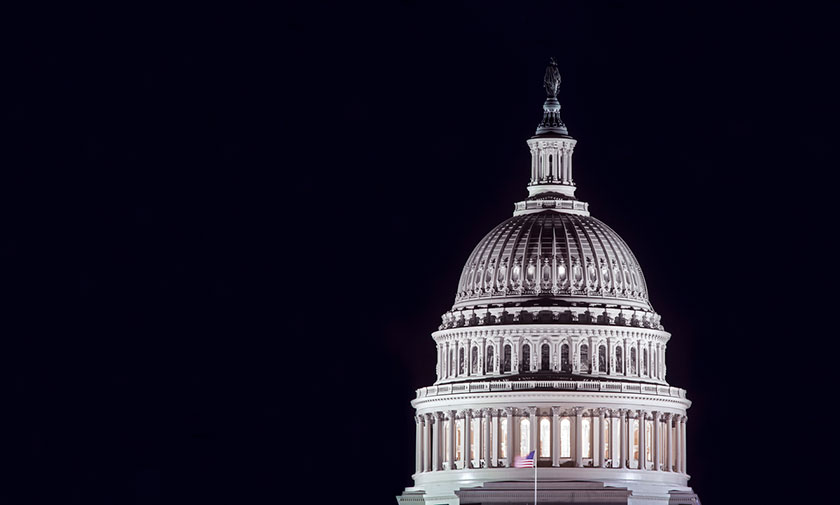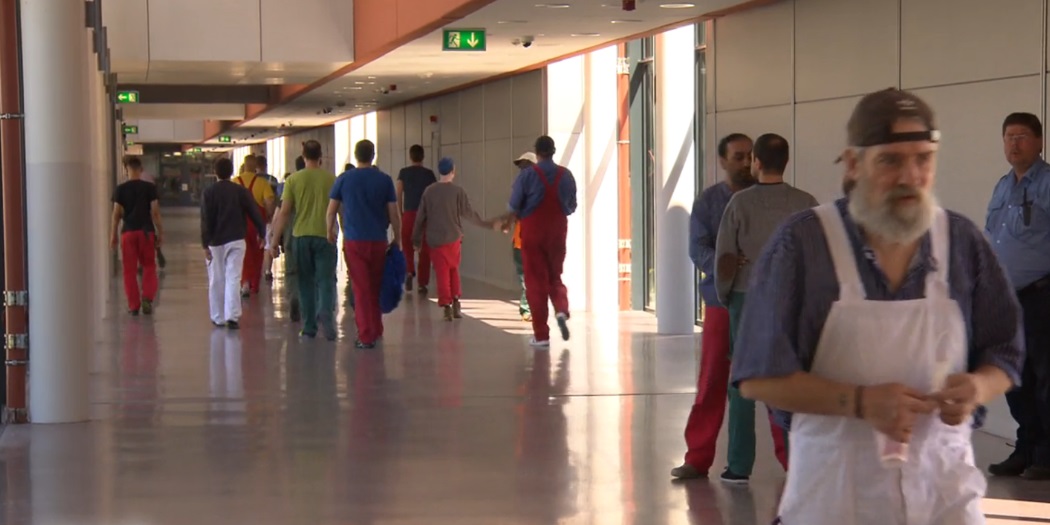
During his first State of the Union address, President Trump declared that former inmates who have served their time deserve a second chance. America is ready for prison reform, but will Washington act?

During his first State of the Union address, President Trump declared that former inmates who have served their time deserve a second chance. America is ready for prison reform, but will Washington act?
In their opinion piece this week for "The Hill," Timothy Head and Craig DeRoche demonstrate how faith-based organizations are valuable in curbing recidivism in America.
The 2017 Oscars Nominations were announced this morning. Ava DuVernay's documentary "13th" is nominated for Best Documentary.
Read More
“Prisoners are human beings,” Prison Fellowship®’s Craig DeRoche says in his interview with FOX 17 in Michigan. “And they have the same-size hopes and dreams of people on the outside”
On Monday, DeRoche visited the Richard A. Handlon Correctional Facility in Ionia County, Michigan.

A new report by the Federal Bureau of Investigations has revealed an increase of violent crime for the year 2015, marking a three-year high after declines in violence in 2013 and 2014. Much of this has been driven by increases in homicides in several of the nation’s urban centers, including Chicago, Houston, and Washington, DC.

For Prison Fellowship Vice President of Advocacy and Public Policy Craig DeRoche, justice reform is more than a job, it’s a passion developed from personal experience.
At the age of 34, DeRoche was elected Speaker of the House in the Michigan State Legislature—the youngest person to ever hold that position.
A significant number of cities in the United States reported an increase in homicide rates in 2015—a disturbing trend that some have claimed marks the end of a period that saw historic reductions in violent crimes in places like New York City and Chicago.

The images of prison are familiar to all of us—cold, pale concrete walls, with limited light filtering through narrow, bar-protected windows; prisoners in solid jumpsuits shuffling through the corridors under the watchful eye of ever-present guards; small, unadorned cells where men and women live out long prison terms in solitude and despair.
Prison Fellowship Senior Vice President for Advocacy and Public Policy Craig DeRoche (back row, third from left) and other religious leaders at the 2015 White House Prayer Breakfast.
On March 30, Prison Fellowship Vice President for Advocacy and Public Policy Craig DeRoche offered the closing prayer as part of the annual White House Easter celebration.
In January, the Charles Colson Task Force on Federal Corrections concluded a year of discussion and research by releasing a series of recommendations for reforming the criminal justice system. Craig DeRoche, Prison Fellowship’s senior vice president for advocacy and public policy, served on the task force, and offers his thoughts on those recommendations, and the future of reform.
Results show Virginians support policies that improve public safety, reduce costs, and respect the human dignity of all individuals.
Lansdowne, Va and Arlington, Va. – As Virginians consider what is next for criminal justice reform, Prison Fellowship and the Charles Koch Institute today released the results of a public opinion survey on criminal justice.
A version of this story originally appeared on the BreakPoint website, and is reproduced here with permission.
In 2014, in an all-too-rare case of bipartisan cooperation, Congress created the Charles Colson Task Force on Federal Corrections to tackle what many have called a crisis in the federal prison system.
Last week, the Charles Colson Task Force on Federal Corrections released a series of recommendations aimed at bringing about significant reforms in the criminal justice system. The suggested reforms are the culmination of a year’s worth of discussion and research by the task force, and provide concrete ways to fix some of the challenges connected to crime, imprisonment, and rehabilitation.
The nation’s largest prison ministry praises biblical nature of new recommendations from bipartisan federal criminal justice task force and urges continued bipartisan collaboration to achieve meaningful reforms
WASHINGTON, Jan. 25, 2016—Despite the snow-induced cancellation of today’s discussion on criminal justice reform at the White House, Tuesday the bipartisan Charles Colson Task Force on Federal Corrections will announce its recommendations to Congress designed with the hope of making our criminal justice system more aligned with biblical restorative justice values.
A version of this post appears on the Justice Fellowship website.
In 2015, an estimated 5.8 million Americans are denied their right to vote. Christian leaders who set policy should act to correct this affront on redemption, restoration, and hope in our communities.
Restoration Partners give monthly to bring life-changing prison ministry programs to incarcerated men and women across the country.
JOIN NOW